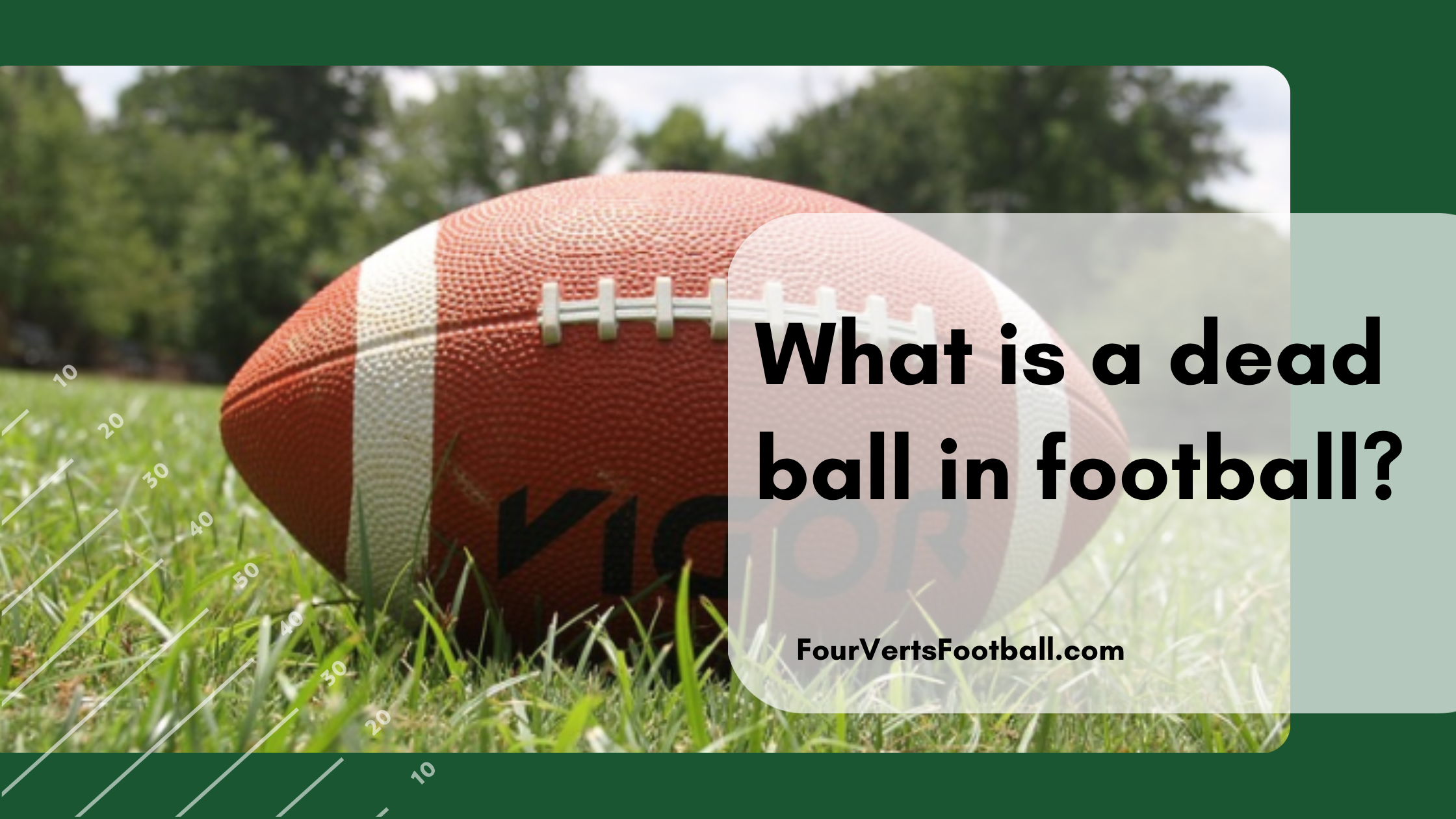In American football, a ball is considered dead at any point after the official has declared the play over. Essentially a dead ball is when there is no play currently happening on the field.
There are numerous situations that cause a dead ball. If a player is tackled in bounds or out of bounds the ball is considered dead.
If a pass is not completed and makes contact with the ground the play is dead.
A dead ball is also signalled from more specific situations. Such as initiating a slide, taking a knee, giving yourself up, or spiking the football.
Dead ball situations also arise on kickoff once the whistle is blown concluding the play. This includes touchbacks, kicks out of bounds, and balls that have come to rest on the field without a player attempting to possess them.
There is also a difference between how teams are penalized based on if the ball was dead or live when the penalty occurred.
What Is A Dead Ball Foul
A dead-ball foul is a penalty that occurred after a play was completed. Essentially dead ball fouls have no effect on the actual play. But rather is an event that happens prior to or after a play is completed.
An example of a dead ball foul could be an excessive celebration after a touchdown.
Once a touchdown is signalled the play is over and it becomes a dead ball situation.
If a player excessively celebrates he will receive a dead ball penalty since it occurred after the play was completed.
How Is Dead Ball Foul Different Than A Live Ball Foul
The obvious difference between a live ball foul and a dead ball foul is that one occurs during the play and the other occurs when it is over.
A live ball foul occurs when the play is currently happening aka “live”. And as we covered earlier a dead ball foul occurs prior to or after the play.
Though there is also a difference in how these penalties are assessed.
The reason these penalties are assessed differently is that a live ball penalty affects the play while a dead ball penalty doesn’t.
For example, if a receiver commits offensive pass interference to get a touchdown that would be a live ball penalty that affected the play.
If that play commits a personal foul after scoring a touchdown that does not affect the play.
The difference in the assessment of these penalties is that one will negate the play. While the other will be assessed on the next play.
A live ball penalty that affects the play causes the play to be re-done on top of penalty yards added to the starting point.
While a dead ball penalty accepts the previous play and instead tacks the penalty yards on to the next coming play.
An example of this can be seen with “free plays“. If the offensive team jump into their backfield before the ball is snapped he will receive a five-yard penalty.
This is because it is considered a dead ball penalty.
If a player is just slightly offside, or lines up offside the offense will get a “free play” as the opponents will be assessed a live ball foul.
This gives the offense a chance to accept the penalty if anything goes wrong hence the name “free play”.

